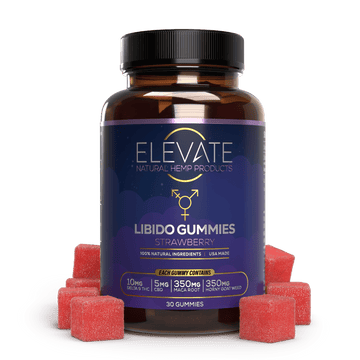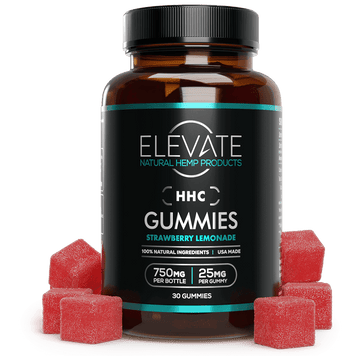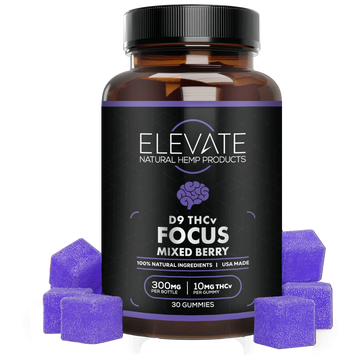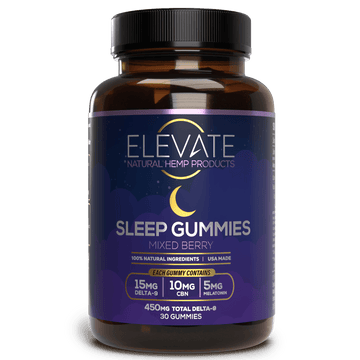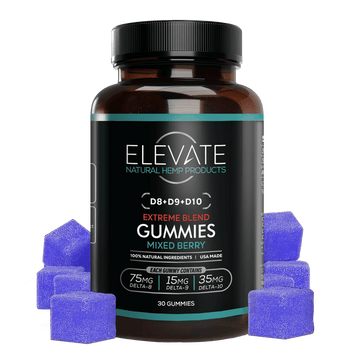Delta 8 for Sleep: A Simple Guide to Better Rest

Delta 8 for Sleep:
Delta 8 promotes sleep through relaxation and mild sedation without the anxiety sometimes caused by Delta 9. Take 10-25mg about 1-2 hours before bed. Indica-dominant products work best. Effects last through the night. May cause grogginess if dose is too high.
Table of Contents
- Key Takeaways:
- What Is Delta 8 And How Does It Work?
- Delta 8 for Sleep vs. Other Sleep Aids
- Potential Benefits Of Delta 8 for Sleep
- Optimal Dosage For Delta 8 To Help You Sleep Better
- Best Ways To Consume Delta 8 For Sleep
- Potential Side Effects And Risks Of Delta 8
- Tips For Using Delta 8 Responsibly
- Final Thoughts
- Frequently Asked Questions About Delta 8 for Sleep
- Related Articles
A truly restorative night's sleep is about more than just being unconscious for eight hours. It’s about quieting the mental chatter from a long day and easing the physical tension held in your body. Many sleep issues stem from an inability to achieve this state of deep relaxation. This is the core reason so many people are exploring Delta 8 for sleep. Known for its unique ability to produce a calm, clear-headed feeling, Delta 8 helps create the ideal conditions for your body to drift off naturally and stay asleep longer. Let’s look at how this compound can support your entire sleep cycle, helping you wake up feeling genuinely refreshed.
Key Takeaways:
- Delta 8 for Sleep: Delta 8 THC is a natural alternative for improving sleep by promoting relaxation, reducing sleep disturbances, and potentially extending sleep duration.
- Dosage Matters: Finding the right dosage of Delta 8 is crucial for effective sleep benefits. Start low and gradually increase to tailor the experience to your needs.
- Consumption Methods: Delta 8 is available in various forms like gummies, vape pens, and capsules, allowing users to choose the best method based on personal preferences and desired effects.
Another night spent staring at the ceiling? You’re not alone in your search for a solid night’s sleep. If you’ve been struggling with sleeplessness, chances are you’ve heard of Delta 8 and its potential to help. But can it help you rest better? Is it the gentle, natural solution you’ve been looking for or another trend?
In this post, we’ll skip the complicated jargon and get straight to the point: Does Delta 8 work for sleep, and could it answer your restless nights? Let’s find out.
What Is Delta 8 And How Does It Work?
Delta 8 THC, short for Delta-8-tetrahydrocannabinol, is a naturally occurring compound found in the cannabis plant, similar to its more well-known cousin, Delta 9 THC. The key difference lies in their chemical structures: Delta 8 has a double bond on the eighth carbon chain, while Delta 9 positions this bond on the ninth. This subtle variation influences how each compound interacts with the human body, primarily through the endocannabinoid system.
The Science Behind Delta 8 THC
Delta 8 binds to the CB1 receptors found in the central nervous system. These receptors are part of the body's endocannabinoid system, which regulates various physiological processes, including mood, memory, and sleep. This interaction is believed to produce a milder psychoactive effect compared to Delta 9 THC. Users often describe the Delta 8 experience as a more relaxed and clear-headed sensation, without the intense euphoria or anxiety sometimes experienced with Delta 9.
How is Delta 8 Made?
While Delta 8 is a naturally occurring compound in cannabis and hemp, it’s only present in very small amounts. To create the quantities needed for products, it’s typically made in a lab. The process starts with CBD, which is legally extracted from hemp plants. Through a chemical process called isomerization, scientists convert the CBD into Delta 8 THC. This method allows for a consistent and pure final product. Because most Delta 8 products are made in labs from CBD, it’s essential to choose brands that provide third-party lab reports to verify the purity and potency of what you’re buying. This ensures you're getting a safe and high-quality product without any unwanted contaminants.
What Does the Delta 8 "High" Feel Like?
Many people describe the Delta 8 experience as a much milder, more manageable version of the high associated with traditional marijuana. It's often called "marijuana lite" for a reason. Instead of an intense, sometimes anxiety-inducing feeling, Delta 8 tends to offer a smooth, calming sensation that leaves you feeling relaxed and clear-headed. Users report a gentle, fuzzy euphoria that helps quiet a racing mind without feeling overwhelming. This sense of tranquility is what makes it so appealing for sleep. By easing you into a state of relaxation, products like Delta 8 gummies can help you unwind before bed, making it easier to drift off naturally.
Delta 8 for Sleep vs. Other Sleep Aids
When you’re trying to find something to help you sleep, the options can feel overwhelming. From traditional supplements to other cannabis compounds, it’s tough to know what’s right for you. Delta 8 stands out for its unique properties, but how does it stack up against other popular choices? Understanding the differences can help you make a more informed decision about your nighttime routine. Let’s compare Delta 8 to three common sleep aids: its more potent cousin, Delta 9 THC; its non-psychoactive relative, CBD; and the widely used supplement, melatonin. Each one works differently in the body, offering a distinct path toward a better night’s rest.
Delta 8 vs. Delta 9 THC
Think of Delta 8 and Delta 9 THC as close relatives. While both can produce feelings of relaxation and euphoria, Delta 9 is known for its much stronger psychoactive effects. For some, this intensity can lead to anxiety or paranoia, which is the opposite of what you want when trying to sleep. Delta 8, on the other hand, offers a milder, more clear-headed experience. It binds to the brain's CB1 receptors less aggressively, resulting in a gentle sense of calm that can ease you into sleep without feeling overwhelming. If you've found traditional Delta 9 gummies too potent, Delta 8 might be the more comfortable alternative for winding down.
Delta 8 vs. CBD
Both Delta 8 and CBD are popular for their calming properties, but they interact with your body in fundamentally different ways. The main distinction is that CBD is non-psychoactive, meaning it won’t produce a "high." It’s excellent for reducing general anxiety and promoting a state of relaxation, which can certainly help with sleep. However, Delta 8 is mildly psychoactive and tends to have more directly sedating effects. If your sleeplessness stems from physical discomfort or an overactive mind, the gentle body high from Delta 8 gummies might provide the extra nudge you need to drift off, whereas CBD is often better for daytime calm.
Delta 8 vs. Melatonin
Melatonin is a hormone your body naturally produces to regulate your sleep-wake cycle. As a supplement, it signals to your brain that it's time to sleep. While effective for many, some people report side effects like grogginess the next morning or unusually vivid dreams. Delta 8 works through a different mechanism. Instead of directly inducing sleep, it helps create the right conditions for sleep by quieting a racing mind and relaxing the body. For those whose sleep is disrupted by stress or anxiety, products from a THC for sleep collection can be a more suitable option, as they address the root of the restlessness rather than just signaling sleep.
Potential Benefits Of Delta 8 for Sleep
Amid the multitude of sleep aids available today, Delta 8 THC stands out as a promising option for those seeking a natural approach to better rest. Its unique properties provide potential benefits that make falling asleep and staying asleep a more manageable experience. Due to its origin from hemp and a slightly altered molecular structure, Delta 8 offers an attractive alternative for those who might be apprehensive about traditional sleep remedies.
Enhanced Relaxation
One of the notable benefits of Delta 8 THC is its ability to promote a sense of relaxation. This effect can be particularly advantageous for individuals who struggle with bedtime anxiety or racing thoughts. The calming influence of Delta 8 may help alleviate stress, encouraging a mental state more conducive to sleep.
Reduced Sleep Disturbances
Delta 8 may also help diminish sleep disturbances that can interrupt a restful night. While the causes behind sleep disruptions vary—and can include stress, environmental factors, or physical discomforts—Delta 8’s mild psychoactive properties aim to offer a soothing provision.
Prolonged Sleep Duration
For individuals dealing with challenges that prevent them from staying asleep through the night, Delta 8 can support an extended sleep duration. By possibly decreasing instances of waking throughout the night and fostering deeper sleep cycles, users may benefit from a full night’s rest, which is crucial for overall health and functional vigor.
Alleviation Of Physical Discomfort
Physical discomfort is a common barrier to achieving restful sleep, and Delta 8 THC’s possible analgesic properties may help address this issue. Those dealing with minor aches or discomforts might find that Delta 8 helps manage such symptoms, facilitating a more comfortable sleeping posture and enhancing the overall quality of rest.
Optimal Dosage For Delta 8 To Help You Sleep Better
Determining the optimal dosage of Delta 8 THC for sleep is essential to achieving restful results without overconsumption. The effects of Delta 8 THC can vary from person to person, requiring a mindful approach to dosage. Here’s what you need to know to find the best dosage for your needs.
Understanding Individual Tolerance Levels
Each individual's tolerance to Delta 8 THC can differ, influenced by factors such as body weight, metabolism, and previous exposure to cannabinoids. Beginners are advised to start with a low dosage, gradually increasing until the desired effect is reached.
Recommended Starting Dosage
For those new to Delta 8 THC, starting with a low dose, such as 5-10 mg, is often recommended. This conservative approach helps gauge individual reactions and ensures a comfortable introduction to the compound's effects.
Incremental Dosage Adjustments
After assessing initial reactions, users should consider incrementally increasing their dosage by 5 mg at a time. This gradual escalation allows for safe experimentation with effects, optimizing the dosage for improved sleep quality without inducing unwanted side effects.
Timing Considerations For Enhanced Sleep
The timing of Delta 8 THC consumption is also key. It’s generally suggested to take Delta 8 THC 30 to 60 minutes before bedtime to allow the compound enough time to settle into the system, promoting a smoother transition into sleep.
Monitoring Effects And Feedback
Paying close attention to the body's feedback is key. Keep a sleep journal to note how different dosages affect sleep patterns, duration, and quality. This method not only aids in finding the optimal dosage but also in understanding one’s unique response to Delta 8 THC.
Consistent reevaluation of dosage and effects ensures that the benefits continue to align with personal health and wellness objectives, aiding in achieving a better night’s rest while minimizing potential risks associated with inappropriate dosages.
Best Ways To Consume Delta 8 For Sleep
Finding an effective way to incorporate Delta 8 THC into a nighttime routine can significantly impact the quality of rest. Here are some preferred consumption methods that align with ensuring a restful night's sleep.
Gummies: A Convenient Choice
Delta 8 gummies are a popular option for those seeking ease and discretion. These edibles provide a methodical and delayed release of Delta 8, allowing users to ease gently into sleep. When taken around 30 to 60 minutes before bed, gummies can support a gradual, longer-lasting effect, assisting in maintaining a deep sleep throughout the night.
Vape Pens: Quick And Calming
For those who need quicker results, vape pens offer a rapid delivery system due to the compounds' ability to enter the bloodstream more efficiently via inhalation. This fast-acting method provides near-immediate relaxation, making it ideal for individuals who might have difficulty falling asleep quickly. However, managing dosage carefully is essential to avoid overconsumption and ensure a restful experience.
Smoking Delta 8 Flower
Smoking Delta 8-infused hemp flower delivers near-immediate effects, similar to vaping, with onset in 5-10 minutes and duration of 2-4 hours. This method suits those who prefer the ritual of smoking and want quick relaxation.
Delta 8 Capsules
Capsules containing Delta 8 offer a convenient and discreet way to consume it. Like edibles, the Delta 8 in capsules needs to be digested, resulting in a delayed onset of effects (typically 30 minutes to an hour or more) and longer-lasting effects. Capsules provide a consistent and pre-measured dose, which can be beneficial for maintaining a consistent routine.
Choosing the Right Cannabis Strain
When you’re trying to improve your sleep, the type of cannabis you choose really matters. Delta 8 THC interacts with your body’s endocannabinoid system by binding to CB1 receptors, which help regulate processes like mood and sleep. This is what helps create that feeling of relaxation. Many people prefer it for nighttime because it offers a more relaxed, clear-headed sensation, often without the intense high or anxiety that can sometimes come with Delta 9. This makes it a great natural alternative if your goal is to quiet your mind, reduce sleep disturbances, and get more consistent rest. Finding products specifically formulated with THC for sleep can help ensure you’re getting a strain geared toward relaxation.
Formulations with Other Sleep-Enhancing Ingredients
While Delta 8 is effective on its own, its benefits can be even more pronounced when it's part of a thoughtful formulation. Its ability to reduce sleep disturbances means you’re less likely to be woken up by minor noises or restlessness during the night. For those who struggle to stay asleep, Delta 8 can also support a longer, more extended sleep duration. Furthermore, if physical discomfort is what’s keeping you awake, its potential analgesic properties may help ease minor aches and pains. When you’re shopping, look for products that are specifically designed to support rest, as they often leverage these properties to create a more comprehensive sleep solution.
Potential Side Effects And Risks Of Delta 8
Understanding the potential side effects and risks when considering Delta 8 for sleep is crucial. While many users report beneficial effects like improved sleep, relaxation, and reduced stress, certain side effects may accompany these benefits. It is always advisable to proceed with caution, especially for first-time users.
Mild To Moderate Side Effects
Delta 8 THC, while less potent than its Delta 9 counterpart, can still produce mild to moderate effects that might disrupt your usual routine. Some users report experiencing dry mouth, dry eyes, and changes in appetite. These side effects are generally mild and tend to subside as the body adapts to Delta 8.
Commonly Reported Side Effects
Beyond the basics like dry mouth and eyes, some people have reported more significant short-term side effects. These can include feelings of confusion, dizziness, or even anxiety, which is often the opposite of what you're looking for when trying to unwind. It's also important to remember that even though it's milder than Delta 9, Delta 8 can still alter your perceptions and make you feel high. This is why starting with a very low dose is so important. Taking too much won't help you sleep better; in fact, it can make unwanted effects like paranoia more likely, completely defeating the purpose of taking it for rest.
Psychotropic Effects
Though considered less potent, Delta 8 THC is a psychoactive compound that can induce a state of euphoria or alter perceptions, similar to Delta 9 THC. These psychotropic effects, although milder, may not be ideal for everyone. Those with a sensitivity to psychoactive substances should approach Delta 8 products carefully and possibly consult with a healthcare professional before use.
Interaction With Medications
As with any cannabinoid, Delta 8 can interact with certain medications. It's imperative for individuals taking prescription medications to consult a healthcare provider to avoid potential negative interactions. Delta 8 may also not be appropriate for those with specific health conditions, particularly those affecting the heart or respiratory system.
Risk Of Overconsumption
Overconsumption is a risk with any substance, and Delta 8 THC is no exception. Consuming beyond recommended dosages can enhance undesired side effects, including increased anxiety or paranoia. Starting with a low dose and gradually increasing allows the body to adapt while minimizing potential adverse effects.
Unknown Long-Term Effects
It's important to acknowledge that since Delta 8 is a newer player on the market, comprehensive long-term research is still catching up. We don't have a full picture of its effects over many years of use. As some health experts point out, studies on its close relative, Delta 9 THC, suggest that prolonged use could impact cognitive functions like memory and attention. While Delta 8 is milder, this information is worth considering as you make personal wellness choices. Being an informed consumer means weighing the immediate benefits you experience against the current unknowns, ensuring you feel confident and comfortable with your routine.
Impact on Natural Sleep Cycles
A common question is whether using Delta 8 will interfere with your body's natural sleep rhythm. Delta 8 works with your endocannabinoid system, a natural network in your body that helps regulate sleep, mood, and more. Instead of forcing sleep, it aims to create a calm state of mind and body, making it easier for you to drift off naturally. By potentially reducing the stress or physical discomfort that can cause sleep disruptions, it supports deeper, more restorative rest. Many people find that this helps them wake up feeling more refreshed, suggesting it complements the body's sleep process rather than disrupting it. For those looking for targeted support, products specifically formulated for rest, like THC gummies for sleep, can be a great starting point.
Legal And Regulatory Concerns
It's important to note Delta 8's varying legal status across different regions. Users must stay informed about the legality of Delta 8 products in their area to ensure compliance with local regulations and avoid legal complications. As the regulatory landscape evolves, keeping up-to-date with these changes can significantly impact one's decision to use Delta 8 for sleep and other purposes.
Lack of FDA Regulation
A significant concern with Delta 8 is the lack of federal oversight. Because it exists in a legal gray area, the U.S. Food and Drug Administration (FDA) does not evaluate or approve Delta 8 products for safety, quality, or efficacy. This means there's no official standard for production, and some manufacturers may use unsafe chemicals to synthesize Delta 8 from hemp-derived CBD. Without regulation, the responsibility falls entirely on the consumer to find a trustworthy brand. This is why transparency is so important; reputable companies will always provide third-party lab results, known as Certificates of Analysis (COAs), to prove their products are free from harmful substances and contain the advertised amount of Delta 8.
Potential for Contaminants
The absence of FDA regulation directly leads to another risk: the potential for contaminants. Unsafe manufacturing processes can introduce heavy metals, solvents, and other harmful materials into the final product. In fact, some independent lab tests have found ingredients like lead and mercury in unregulated Delta 8 vape products. This isn't just a matter of quality control; it's a serious health and safety issue. To protect yourself, you should never purchase from a brand that doesn’t make its lab reports easily accessible. Scrutinizing these reports ensures the Delta 8 gummies or other products you choose are pure and safe for consumption.
State-Level Bans and Restrictions
While Delta 8 is technically legal at the federal level due to a loophole in the 2018 Farm Bill that legalized hemp, its status at the state level is much more complicated. Citing safety concerns and the lack of regulation, a growing number of states have moved to ban or restrict the sale of Delta 8 products. The legal landscape is constantly shifting, and what is permissible in one state may be illegal just across the border. Before purchasing or using Delta 8, it's essential to check your current local and state laws. This ensures you can enjoy its potential benefits without facing any legal complications.
Tips For Using Delta 8 Responsibly
Navigating the world of Delta 8 THC can be both exciting and overwhelming. It's crucial to approach it with caution and mindfulness to fully enjoy its benefits. Here are some key tips to consider for responsible use.
Educate Yourself
Start by understanding what Delta 8 is and how it differs from other cannabinoids. Comprehensive knowledge about its effects, legal status, and potential benefits can empower responsible decision-making. Read about its interaction with your body and any relevant state regulations.
Start Low And Go Slow
Tolerance levels can vary significantly between individuals, especially for those new to Delta 8 THC. Begin with a lower dose to assess your body's response. Gradually increase the dose to find optimal balance, ensuring you experience its calming effects without overwhelming sensations.
Choose Quality Products
Select products that prioritize safety and potency. Focus on brands that provide transparency through third-party lab testing. This ensures that your product is free of contaminants and accurately labeled for consistent potency.
Mind Your Setting
The environment in which you use Delta 8 can significantly affect your experience. Opt for a safe, comfortable setting where you feel relaxed and can control your surroundings. This minimizes potential anxiety and enhances the overall experience.
Monitor Your Usage
Keep track of how frequently you use Delta 8 and your consumption amounts. Responsible use involves moderation, ensuring that Delta 8 remains a positive aspect of your wellness routine rather than a dependency.
By following these guidelines, adult consumers can responsibly enjoy the restorative qualities of Delta 8 THC while prioritizing their health and safety.
Managing Tolerance Buildup
If you find that you need more Delta 8 to achieve the same relaxing effects over time, you might be developing a tolerance. This is a natural response from your body as it gets accustomed to the cannabinoid. To keep your routine effective, consider taking a "tolerance break" or a "T-break." This simply means taking a short pause from using Delta 8, which can be anywhere from a few days to a couple of weeks. This break allows your body's endocannabinoid system to reset, which can help make your THC for sleep products feel as effective as they did initially once you resume.
Combine with a Healthy Bedtime Routine
Think of Delta 8 as a helpful addition to your sleep routine, not the entire solution. For the best results, pair it with other calming activities that signal to your body it's time to wind down. This could mean dimming the lights, reading a book, taking a warm bath, or practicing some light stretching or meditation. Creating a consistent, relaxing pre-sleep ritual can significantly improve your sleep quality. By combining these healthy habits with Delta 8, you’re creating a powerful, holistic approach to getting a better night's rest and waking up refreshed.
Improving Absorption with Healthy Fats
Here’s a simple tip to get the most out of your edibles: pair them with a snack containing healthy fats. Cannabinoids like Delta 8 are fat-soluble, which means they are absorbed more effectively by your body when consumed with fats. You don’t need a full meal; something small will do the trick. Try taking your Delta 8 gummy with a handful of nuts, a slice of avocado, or a spoonful of peanut butter. This small adjustment can help your body process the Delta 8 more efficiently, potentially leading to a more consistent and effective experience.
Keep Products Away from Children and Pets
Prioritizing safety is non-negotiable, especially when you have little ones or furry friends at home. Many Delta 8 products, particularly gummies, look and taste like regular candy, which can be dangerously appealing to children and pets. Always store your products in a secure location that is out of their reach, such as a high cabinet or a locked drawer. Using child-proof containers provides an extra layer of security. Being mindful about storage ensures that you can enjoy the benefits of your cannabis products responsibly while keeping your loved ones safe.
Final Thoughts
Delta 8 THC offers a potential natural solution for those struggling with sleep disturbances. Its mild, relaxing effects may help promote better rest, reduce anxiety, and alleviate physical discomfort. While it’s not a one-size-fits-all remedy, many users find it effective for improving sleep quality and duration. If you're considering incorporating Delta 8 into your routine, starting with a low dose is crucial, monitoring its effects, and choosing high-quality products to ensure a positive experience.
Read also:
- Does Delta 8 Expire?
- Different Types Of THC: A Guide To Delta 8, Delta 9, THCA, And More
- THCP vs. Delta 8 THC: Differences & Similarities
Frequently Asked Questions About Delta 8 for Sleep
Can I become dependent on Delta 8 for sleep?
While Delta 8 THC is generally considered safe for adult use, it's important to use it responsibly. As with any supplement or medication to improve sleep, it's crucial to monitor your use and avoid becoming overly reliant. Always consult with a healthcare professional if you have concerns about dependency.
Is Delta 8 legal for use as a sleep aid?
The legality of Delta 8 varies by state and country. In the United States, the 2018 Farm Bill made hemp-derived products like Delta 8 legal at the federal level, provided they contain less than 0.3% Delta 9 THC. However, some states have laws restricting Delta 8, so it's essential to check local regulations before purchase and use.
Does Delta 8 interact with other sleep medications?
Delta 8 may interact with certain medications, including those for sleep. It's advised to consult with a healthcare provider before combining Delta 8 with any prescribed or over-the-counter sleep aids to avoid unwanted side effects or reduced effectiveness of the medications.
Can you overdose on Delta 8 for sleep?
Delta 8 is known for having a wide therapeutic window, making it unlikely to cause overdose in the conventional sense. However, using excessive amounts could lead to heightened psychoactive effects or other discomforts. It’s best to start with a low dosage and adjust as necessary to find your optimal level.
Will Delta 8 show up on a drug test?
Yes, Delta 8 THC may show up on drug tests, as most screenings are designed to detect THC metabolites, which can be produced by both Delta 8 and Delta 9 THC. If you are subject to drug testing, consider this potential risk before using Delta 8.
Can pregnant women use Delta 8 for sleep?
Using Delta 8 THC during pregnancy is not recommended due to limited research on its effects on fetal health. It is crucial to avoid any cannabis-related products during pregnancy unless explicitly advised by a healthcare professional.
Related Articles
Join Our Newsletter
Sign up to be the first to know about our can't-miss product drops, special VIP offers & exclusive discounts.

